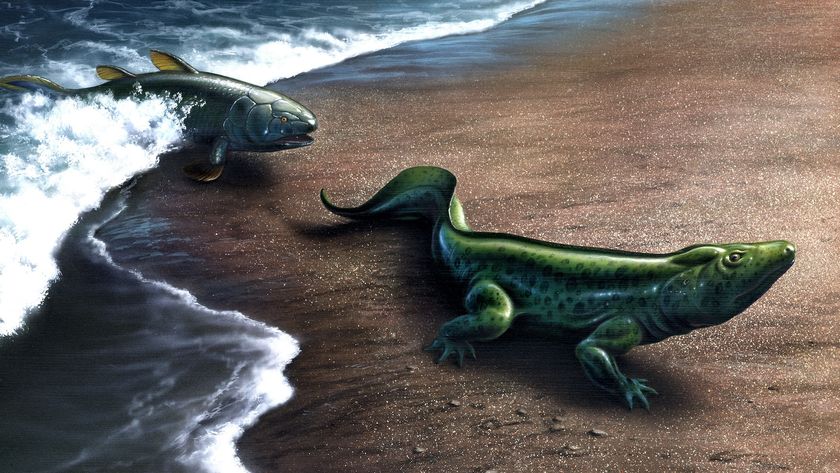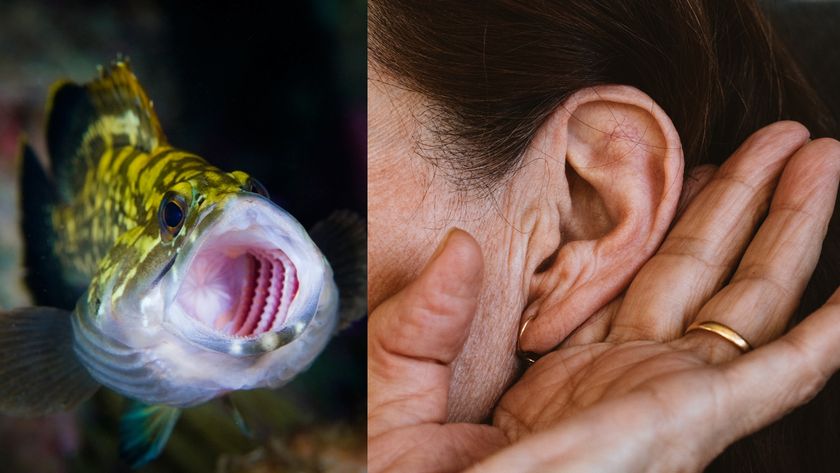
The old adage that women marry their dads may be true.
Female animals really do tend to prefer mates that physically resemble their fathers, a new study suggests.
In the study, published Aug. 8 in the journal Evolution, researchers used a computer model to show that animals seeking mates with their father's physical traits tend to have more offspring than animals with no dad preference. Because a father has, by definition, succeeded in the mating game, looking for males with similar features is a good strategy for finding good partners, said study co-author Tucker Gilman, an evolutionary biologist at the University of Manchester in England.
"The idea is that if a female has a strategy that's genetically encoded that causes her to look for mates that are similar to her father, then she gets the advantage of being better able to choose genes that are fit and sexy," Gilman told LiveScience. [The Animal Kingdom's Most Devoted Dads]
The model may not apply to human mating, though some research has suggested humans choose mates in a similar way to other animals.
Sexual imprinting
Scientists have long known that animals often shape their sexual preferences based on the animals they were exposed to in youth, a process known as sexual imprinting. For instance, chicks that saw a bird with brightly colored feathers stuck to their heads in one study sought out this look in their potential partners when they grew up, even if it doesn't actually exist in the wild. Stickleback fish and wolf spiders also show evidence of sexual imprinting.
Sign up for the Live Science daily newsletter now
Get the world’s most fascinating discoveries delivered straight to your inbox.
Biologists have argued hotly as to whether humans show this trait. Some studies show that ladies like men who look like their father and men prefer women who resemble their mother.
Looks like dad
Gilman and several high-school students developed a model in which several organisms chose mates. Some females had genes that led them to prefer mates that shared their father's traits, whereas others had weak preferences or no preferences for their dad's looks.
Then, the team let the simulated organisms "reproduce" for millions of generations.
The females with strong paternal preferences tended to outcompete females who didn't imprint on their fathers. Over time, a strong preference for daddy look-alikes emerged in the population. When dads were not around, the model predicted that females would imprint on their mothers or on other males.
Picking someone who looks like dad is probably a good strategy, because fathers have a demonstrated track record: At the very least, they successfully mated once, which is more than many males in a population can say, Gilman said.
The more physically similar two animals are, the more likely they have the same underlying genes. Looking for physical similarities to fathers could therefore provide animals with a shortcut for choosing quality mates.
The findings are consistent with past work, said Maria Servedio, an evolutionary biologist at the University of North Carolina Chapel Hill, who was not involved in the study. Servedio has found similar results with a simpler version of the model.
Still, testing the model in the wild would be difficult, she said.
Proving this sexual imprinting is at work in humans would be even trickier.
"We know in a lot of cases that the way we choose mates is similar to the way that animals choose mates," Gilman said. "Whether it will turn out eventually that we're also imprinting in predictable ways is, I think, a big open question."
Follow Tia Ghose on Twitter and Google+. Follow LiveScience @livescience, Facebook & Google+. Original article on LiveScience.

Tia is the managing editor and was previously a senior writer for Live Science. Her work has appeared in Scientific American, Wired.com and other outlets. She holds a master's degree in bioengineering from the University of Washington, a graduate certificate in science writing from UC Santa Cruz and a bachelor's degree in mechanical engineering from the University of Texas at Austin. Tia was part of a team at the Milwaukee Journal Sentinel that published the Empty Cradles series on preterm births, which won multiple awards, including the 2012 Casey Medal for Meritorious Journalism.












